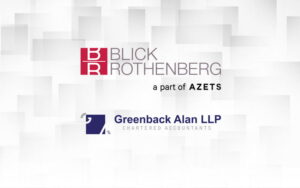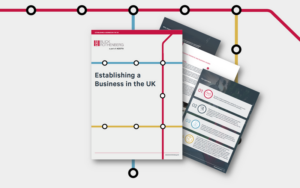What do HMRC’s change to the basis period rules mean?
HMRC is changing the rules around the basis periods businesses use for their reporting for tax purposes
Robert Salter sets out its impact
HMRC’s Change to the Basis Period Rules for Taxation – So what does this mean in practice?
Many accountants and advisors in practice will have heard that the rules about ‘basis periods’ are changing with HMRC insisting that businesses start reporting their profits (and losses) based on the UK tax year from April 2024 onwards. In practice, however, whilst the UK tax year runs – as everyone will know – from 6th April to the following 5th April, under the rules, HMRC would accept those businesses which use a 31st March year end as an alternative to the official tax year-end from a basis period perspective. Indeed, the 1st – 4th April would also be acceptable as a new year-end for HMRC under these changes, though in practice 99% of affected businesses will use either 31st March or 5th April as their year end, in practice.
What does this mean?
Firstly, when considering what businesses or companies are impacted by these changes, it is important to realize that it is only self-employed traders, partnerships and limited liability partnerships which will be affected. The rules are not changing for limited companies.
Moreover, clearly many established businesses / traders in the above groups will actually always have used either a 31st March or 5th April year end for their accounting and tax reporting obligations. As such, the new rules will have no impact on such businesses – they can simply continue reporting their taxable profits (or losses) as if nothing has changed.
New Businesses – what should one do for these from an accounting period / basis period perspective?
Although it has long been accepted that any new unincorporated business can choose its own year end, in practice with the new rules coming into force fully from April 2024 onwards (and 2023/24 being the official ‘transition year’), it is clearly appropriate that any new businesses (and in this regard, this could include sole traders and unincorporated businesses which have been trading for up to 10-11 months already, for example), look at having a formal basis period year end of either the 31st March or 5th April year end. This means, for example, where such a business – say a business which started trading on 1st July 2023 – might have traditionally had an accounting year end / basis period of 30th June 2024, would now simply have a 31st March (or 5th April) year end.
This would mean, for example, it simply reports its income and expenses and net profit / loss for the period ended 31st March 2024 on the individual trader’s 2023/24 Self-Assessment Tax Return.
What about established businesses which have been trading for 1 plus years already?
The issues associated with HMRC’s changes to the basis period rules fundamentally impact those unincorporated businesses which have been operating for 12 months or more and which have used an accounting period which is different from the UK tax year end. These businesses will need to treat their reporting for the 2023/24 UK tax year on a ‘transitional basis’. This means that in the 2023/24 tax year, a business which had, for example, a tax year end of 30th September 2023 – and would have traditionally used that year end as the basis for reporting the profits (or losses) on the individual 2023/24 self-assessment tax returns, would now need to:
- Report the profit for the accounting year ended 30th September 2023 (this profit hasn’t previously been reported for tax purposes); and also
- Now report the profit associated with the period 1st October 2023 – 31st March 2024 (or 5th April 2024).
As such, the 2023/24 tax year would in this example result in the self-employed trader having to report 18 months income in one tax year. Realistically in some cases, where the trader has had, for example, a 30th April year end historically, they could end up having to report 23 months profits in the one tax year.
Clearly the above requirements are likely to push many self-employed taxpayers into higher rates of tax than would be the case in a ‘normal tax year’. As such, HMRC’s rules do – thankfully – provide some reliefs and transitional arrangements including:
- The ability to spread the ‘excess profit’ over 5 years for tax purposes; and
- Relief for any overlap profits which have been brought forward from earlier years.
It is also quite possible that in the above example, some people (e.g. those in an international partnership which might not be willing to change its accounting year on a going forward basis), will need to report some data on an estimated basis in the initial tax return and amend these numbers subsequently. For example, this could impact someone in a US or German partnership, which reports profits / losses on a calendar year basis. Whilst the 2023 calendar year data should have been finalized when the 2023/24 UK tax return is prepared, there is little chance that finalized profit figures for the 2024 partnership accounts would have been finalized by 31st January 2025, the when the 2023/24 tax return needs to have been filed by.
So what does this look like?
The following shows how the reliefs and additional income / profit reporting could look like in practice:
| Reporting | Income |
| Profits for year-ended 30/09/23 | £75,000 |
| Profits for the period 01/10/23 – 31/03/24 | £45,000 |
| Total Initial Profit Figure | £120,000 |
| Less: Overpayment Relief (say) | (£15,000) |
| 2023/24 Taxable Profit Figure | £105,000 |
| Extra Profit for the year (£105,000 – £75,000) | £30,000 |
The extra profit for the year of £30,000 would in the first instance be fully taxable as part of the 2023/24 Self-Assessment Tax Return. However, the rules do allow this excess profit to be ‘spread’ over a period of 5 years – i.e. so one gets taxed on £6,000 per annum in the 5 years up to and including 2027/28.
So What?
As with any change to the tax system, it is perfectly right for accountants and tax advisors to ask – so what? That is, what does this mean to me and or what does this mean to my clients? What should they be doing? What advice should we be giving them? How can they plan for the future?
Sadly, as one would expect when it comes to tax, there is unlikely to be one simple, straightforward answer in this regard. For example, as previously mentioned, there will be absolutely no change for some businesses that already have a 31st March or 5th April year end.
Moreover, some businesses that use an alternative year end will not suffer any major implications from the basis period reform. For example, Mr Gelato, who has an ice cream van and a 31st December year end, actually makes 99% or more of his annual profits between April and October every year. As such, the obligation to report some additional income / costs covering the period from 1st January 2024 – 31st March 2024 is unlikely to make any substantive difference to the income / profit which needs to be reported on his 2023/24 Self-Assessment Tax Return.
However, clearly for many other businesses (e.g. those which are growing quickly or have high profit periods being captured earlier than would otherwise be the case), the change will make a really significant difference and might, for example, be a real headache from a cash flow perspective. You may also find that it requires them to use estimated data in the reporting of their 2023/24 tax return, for example, with the risk therefore that these numbers might need to be updated in due course (with the costs that can result from these amendments both in terms of professional costs, but also potentially with regard to interest and late filing penalties).
It could also result in the individuals being caught by many of the cliff edge flaws in the UK tax system including:
- Becoming liable to the Higher Income Child Benefit Charge (HICBC) on income between £50,000 – and £60,000;
- The withdrawal of the personal tax allowance (i.e. on income between £100,000 – £125,140); and
- The loss of free childcare, if their income exceeds £100,000 in a tax year.
In Summary
In practice, it probably isn’t possible for taxpayers (or their advisors) to avoid all the hiccups and challenges associated with the reform to the basis periods. However, clearly it is still important for advisors to have meaningful discussions with their clients on the issues that these changes bring, so that no clients are ‘caught on the hop’ and fully shocked by the changes when it comes, for example, to the submission of their 2023/24 UK tax return.
Would you like to know more?
As this is a complex area and something which HMRC is increasingly interested in, those social influencers who are receiving such benefits – or indeed, the companies providing them with payments or products – should look at contacting their regular Blick Rothenberg contact or Robert Salter using the form below.
Originally published in AT Magazine May/June 2024 – Reproduced with kind permission
Contact Robert

You may also be interested in

Contractors and subcontractors in the UK construction sector must understand the Construction Industry Scheme

Vodcast – Steve Rigby











